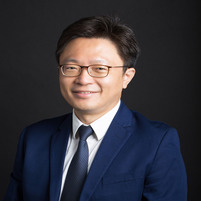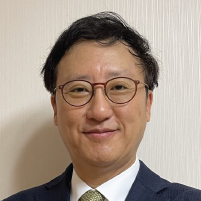
SPEAKERS
-
Day 1
Urgency Day
Tuesday, 7 January 2025 -
Day 2
Impacts & Solutions Day
Wednesday, 8 January 2025 -
Day 3
Strategy Day
Thursday, 9 January 2025 -
Day 4
Action Day
Friday, 10 January 2025
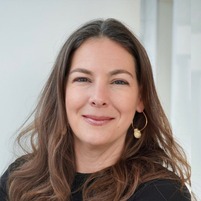
Joy Shumake-Guillemot leads the WHO/WMO Joint Office for Climate and Health in Geneva Switzerland, and is the co-coordinator of the GHHIN. She is an environmental health scientist and public health practitioner who has worked with WHO, WMO, UNICEF and others to develop public health policy and programming for climate adaptation and risk management. She has extensive field experience in Africa, Asia, and Latin America supporting public health and humanitarian assistance programs.
Joy is a leading voice in the field of climate services for health. For over a decade, she has been working at the interface of WMO and WHO to accelerate the availability, access and use of climate and weather information that can improve public health policy and practice. Joy received her MSc in Environment and International Development Policy from the University of East Anglia (UK) and Doctor of Public Health in Environmental Health Sciences from Johns Hopkins University (USA).
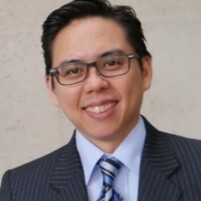

Ms Koh Li-Na is the Assistant Chief Executive Officer (CEO) responsible for meteorological services, climate science research and radiation protection at the National Environment Agency (NEA) of Singapore. She is also the Director-General of Meteorological Services.
Prior to NEA, she was the Assistant CEO at the Infocomm Media Development Authority of Singapore, overseeing the formulation of strategies for Singapore’s digital economy and digital inclusion for society. Ms Koh has also served stints at the Early Childhood Development Agency the Info-communications Development Authority and the Personal Data Protection Commission.
Ms Koh holds a Master in Business Administration (Distinction) from INSEAD and a Master in Engineering (Distinction) from Cambridge University.

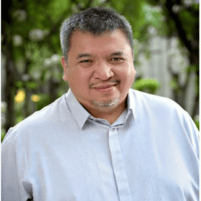
Dr. Eduardo P. Banzon is the Asian Development Bank’s (ADB) Director of the Health Practice Team under the Human and Social Development Sectors Group. Doc Dodo, as he is fondly called, champions on universal health coverage, as he leads on ADB’s health sector and collaborates with other sectors and departments to develop and maintain health policies, strategies, and operational plans in alignment with ADB’s goal of working across the developing member countries in the Asia and Pacific for an improved health care provision for poverty reduction and improved human capital.
Doc Dodo is also an honorary visiting Associate Professor, since November 2021 to present, of Saw Swee Hock School of Public Health from the National University of Singapore. He provides invaluable input on universal health coverage, health financing, global and regional health collaboration, comparative health systems and policies, and health policy development.
Doc Dodo has over 32 years of experience, showcasing his extensive experience in a range of organizations focused on health and public health management, including as the President and Chief Executive Officer of the Philippine Health Insurance Corporation, the country’s national health insurer. Before joining ADB in 2014, he was the former regional adviser for health economics and health financing of the Eastern Mediterranean Regional Office of the World Health Organization (WHO). He has also worked with the Business Mirror newspaper as a weekly columnist; as a Senior Health Specialist in the World Bank; as a Special Assistant to the Secretary of the Philippines’ Department of Health (DOH) and the Bureau of Food and Drugs (BFAD).
Doc Dodo was also a faculty member, to teach; conduct research; and scholarly activities to improve standards of the top prestigious universities in the Philippines, which includes the University of the Philippines’ (UP) College of Medicine; Ateneo Graduate School of Business; and Asian Institute of Management (AIM).
Doc Dodo completed his degree of Bachelor of Science in Biology from the University of the Philippines (UP), Diliman; his medical degree from the UP College of Medicine; and his graduate degree of MSc in Health Policy, Planning and Financing from the London School of Economics and the London School of Hygiene and Tropical Medicine.
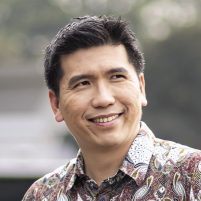
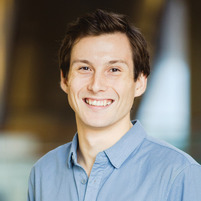
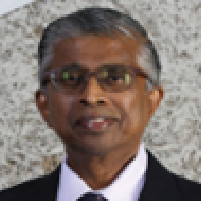
Benjamin first joined the Ministry of Foreign Affairs in October 1981 and served as a Foreign Service Officer till his retirement in 2018. Benjamin served in various portfolios in MFA HQ and abroad. Benjamin also served in several Singapore Embassies overseas, including in Brunei, Philippines, the USA, and Laos. He last served as Singapore's Ambassador to the Lao People's Democratic Republic, from 2007 to 2011.
In 2011, Benjamin joined SRC where he was involved in the restructuring of SRC, adopting a more corporate structure, with strong governance and management. He officially took over as Secretary General and Chief Executive Officer (SG/CEO) in March 2012, overseeing all the humanitarian work of the SRC, both local and overseas, including disaster response and recovery missions. Benjamin has overseen the transformation and growth of SRC, with SRC expanding its suite of humanitarian services to serve the vulnerable in Singapore, particularly the elderly, given the rapidly ageing population of Singapore. SRC has also been in the forefront of developing a robust and resilient society, promoting the learning of First Aid, and more recently initiating psychological first aid and promoting it amongst the public. SRC efforts have been widely recognised, receiving accolades from several government agencies, SRC has also seen its role as a thought leader in the field of humanitarian work grow significantly over the last few years.
Mr William has served on the Boards of St Andrew’s Mission Hospital, Operation Mobilisation, Special Olympics Asia Pacific, and the People's Association (till June 2023), and is Chairman of the Sample Oversight Committee of the Health Sciences Authority. Mr William was awarded the National Day Long Service Medal in 2008 and the Public Service Medal (PBM) in 2023. For his efforts in promoting Lao-Singapore relations he was awarded the Friendship Cross by the Lao Government in 2011.
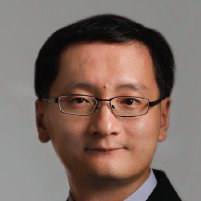
Mr Chiu Wen Tung is Group Director (Research & Development) at Urban Redevelopment Authority (URA). He leads his team to research for solutions to meet Singapore’s future planning needs and steers URA’s research programmes.
Wen Tung was previously Executive Director (Resource Development) in EDB, responsible for planning and securing resources needed for industries to grow in Singapore.
Wen Tung graduated with a Masters in Chemical Engineering from the Imperial College, United Kingdom and with High Honours from the University of Chicago Booth School of Business Executive MBA programme.
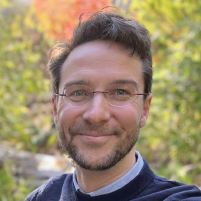
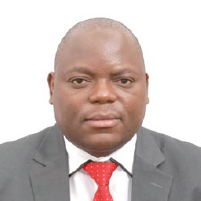
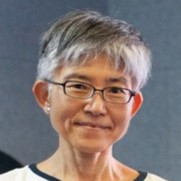
Dr. Yuka Ujita, Japanese national, is a medical doctor by profession and holds Ph.D in Preventive Medicine from the University of Occupational and Environmental Health, Japan (UOEH).
On a foundation of her work experience in the medical field, as a certified occupational physician, paediatrician, and travel health practitioner, she offered Occupational Safety and Health (OSH) services to both workers and employers in various settings.
In 2003, she joined the ILO Subregional Office for East Asia. Since then, Dr. Ujita has contributed to improvement and promotion of safety and health at work through policy and technical advice, training, knowledge sharing, awareness raising and project backstopping both at the HQ and in the field offices.
The areas she has particularly covered include OSH data, safety and health of vulnerable groups of workers (female workers, young workers, migrant workers, and those in informal economy) and hazardous child labour.
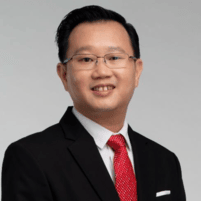
Mr. Silas Sng started his career in 1997 with the Ministry of Manpower as an engineer cum inspector. He gained his operational experience inspecting factories and equipment such as boilers and cranes, as well as leading investigation into fatal or serious accidents. Silas went on to assume various leadership role in the Occupational Safety and Health Inspectorate as well as in the Work Injury Compensation Department. Silas was also instrumental in the development of the Workplace Safety and Health Act that was enacted in the 2006.
On 1 April 2019, Silas was appointed as the Commissioner and Divisional Director for the Occupational Safety and Health Division. He is entrusted with the honor and responsibility to lead the division to achieve the next level of WSH improvements in Singapore guided by the WSH2028 strategies.
Email: Silas_sng@mom.gov.sg
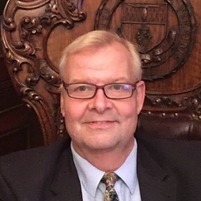
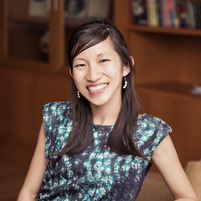
Dr Jean Liu is a Director at the Centre for Evidence and Implementation, and adjunct Assistant Professor at Yale-NUS College and the Yong Loo Lin School of Medicine.
She has published >30 research papers focused on how external factors (e.g. new forms of technology) influence health behaviors and outcomes. She has also taught tertiary level courses on behavioral science, well-being, and health psychology.
In recognition of her expertise, Dr Liu served as consultant to the World Health Organisation and the Central Provident Board. She is a Council Member for the Agency for Care Effectiveness, expert panelist for the Health Promotion Board, and board member for several non-profit organisations. Her research insights are frequently featured in media outlets and have been discussed in parliament.
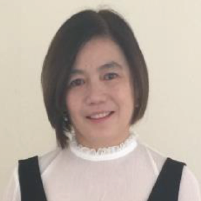
Ms Delphine Fong manages the Sport Safety Division of Sport Singapore since the Division’s inception in 2005. She has been actively engaged in sports safety promotion and drowning prevention programs; conceptualized and developed the Sports Safety and Water Safety Champs program, the ‘Buddy-Up’ and the ‘Be Seen, Swim Safely’ national seminar and campaigned the first Water Safety Networking Session in 2006. More than 15,000 students, teachers, volunteers and working adults have attended the sports safety champs’ program.
She has also produced more than 100 sports safety guides and collaterals, conducted more than 700 workshops and presentations both locally and overseas. In addition, she has investigated and reviewed more than 30 sports incidents in Singapore. Her passion for sport safety inspired her to develop the sports safety excellence framework for Singapore, its ecosystem and implementation plans which had been shared with partner sporting agencies from countries such as Korea, South Africa, New Zealand, Australia, Hong Kong, Malaysia and China.
She contributes to the wider Singapore safety movement through her involvement with various committees such as the National Water Safety Council, Sports Safety Committee, Heatwave Work Group, Concussion Committee, Water Bodies Safety & Rescue Committee, MOE Sports Safety Committee, Safe Community Working Committee, National Haze and Pandemic Taskforce, Recreational Diving Safety Committee, Heat Index Expert Panel, the Dragon boat (2007) and Taekwondo Sports Inquiry (2010), Quality and Safety Standards Committee (Singapore) and Technical Committee (WSH) including several Code of Practice (COP) Work Groups.
She was also the Chairperson of the Sports Safety Working Committee comprising 14 government, non-government organizations and private sector agencies aimed to promote sports safety with relevant stakeholders since 2009. The three key themes conceptualized by her, “Think Safe, Play Safe, and Stay Safe” of the Sports Safety Plan aims to promote safety awareness, develop sports safety guidelines and management system, and raise overall sports safety standards not only in Singapore but around the Asian countries as well. In 2019, she revived the Sports Safety Committee with more than 20 professional representatives to review and update the sports safety guidelines and translating these guidelines into Singapore Standards (SS) incorporating guidelines on heat injury prevention. The standards initiated by her include SS 681:2022 Code of practice for sport safety, SS 700:2023 Code of practice for water safety - aquatic facilities and SS 701:2023 Code of practice for inland and open water activities; work in progress is the SS for gym and studio safety. She has also developed the heat stress management plan uploaded onto the Sport Singapore’s website for use by the sport fraternity.
Her strong belief that collaborative efforts can achieve common goals for safety saw her partnering various agencies such as the Singapore Heart Foundation (SHF), Singapore Resuscitation Council now known as the Singapore Resuscitation and First Aid Council (SRFAC), A-Star, Traffic Police (TP), Singapore Civil Defence Force (SCDF), Land Transport Authority (LTA), SengKang Healthcare, Peoples Association (PA), Ministry of Health (MOH), NEA, SPF, KKH, NTU and PSA to promote lifesaving and injury prevention initiatives.
Delphine has also supported the Asian Youth Games, Youth Olympic Games and helmed the Safety Functional Area (FA) for the 28th SEA Games 2015, 8th ASEAN Para Games 2015 and ASEAN University Games 2016. She also chaired the 28th SEA Games Venue Risk Assessment and Management Working Group comprising various government agencies such as MOM, PUB, NEA, SCDF, SISO and BCA. Under her leadership, she has successfully engaged and worked in partnership with the Singapore Institution of Safety Officers (SISO) for pro bono support to conduct and validate risk assessments for all training and competition venues as well as perform safety inspections during major Games. The collaboration saw the signing of the MOU on 8 July 2013.
Since 2013, she has single-handedly conducted sports safety training and leadership / team bonding sessions for the committed 120 registered workplace safety volunteers and more than 50 Venue Medical Managers. She was also advisor to other functional areas on safety related matters such as incident reporting and management, inclement weather and haze management including the heat stress management for the sports fraternity. To date, she has coached more than 500 safety volunteers; with 80 volunteers progressing to safety mentors and leaders.
Delphine believes that everyone has a role and responsibility in safety performance. In 2016 upon being certified as a CPR/AED instructor, she set up the CPR/AED Training Centre accredited by the SRFAC to train volunteers deployed at sport facilities and sporting events. She has since progressed to a Chief Instructor. With 50 CPR/AED volunteer instructors under her guidance, they have certified more than 500 volunteers in CPR/AED.
Delphine initiated the implementation of the Computer Vision Drowning Detection System (CVDDS) in all public competition pools which saw her receiving the PST Exemplary Innovator Award 2019 for the accomplishment. Of the 79 nominations, only 5 projects were selected for the award; the CVDDS being one of the projects.
Delphine has also initiated and pioneered several Singapore Standards with the support from the Enterprise Singapore and Standards Development Organization such as the upcoming Safety of Sport Equipment, Safety in Aquatic Facilities, Safety for Open Water Sporting Activities, Safe Climbing and Abseiling, Safety in Outdoor Learning and Adventure etc. She is also the Convenor for the COP for Sports Safety Work Group and Co-convenor for the Open Water Sports Safety Work Group. The COP for Sport Safety SS 681:2022 has been launched on 15 March 2022 by Senior Parliamentary Secretary, Ministry of Culture, Community and Youth and Ministry of Social and Family Development, Mr Eric Chua. The two Singapore Standards on water safety were launched on 25 Jan 2024.
For her fervent efforts, Delphine was selected as a recipient of the Enterprise Singapore and Singapore Standards Council Commendation Award for her pivotal role and contribution in the implementation, development and promotion of the Singapore Standardization Programme.
Delphine holds a Bachelor of Science in Psychology and has more than 28 years of experience in facility and safety management system.
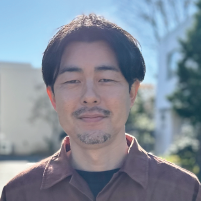
2006 Ph.D (Human Sciences) at Waseda University
2007-2010 Research associate, Faculty of Human Sciences, Waseda University
2010-2012 Associate Professor, Faculty of Sport Sciences, Waseda University
2012-preset Senior Researcher, National Institute of Occupational Safety and Health, Japan
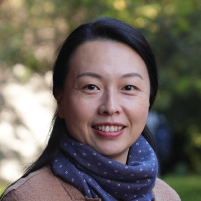
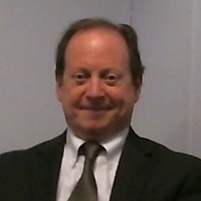
Dr. Gassert’s current interests are twofold: international training in basic and specialized occupational and environmental health (OEH) services in alignment with the UN 2030 SDGs and ILO Conventions 155, 187 and 161, and climate change resilience for planetary health, using tools and roadmaps for both. He is focused on ways to help mitigate what he sees as the five global OEH crises: occupational diseases and deaths, climate change impacts (most importantly heat), pandemics, nuclear and armed conflicts, and unethical use of artificial intelligence. As part of a 2018 initiative to advise WHO on Universal Occupational Health Coverage, the goal is to leave no one behind, and that its achievement requires parallel work on all five crises.
Since 1996, Dr. Gassert has been board certified in Internal Medicine after training at Johns Hopkins School of Medicine Bayview Hospital, and since 1998 board certified in Occupational & Environmental Medicine after training at Harvard School of Public Health. Prior to medical training he received a master in science in Occupational (Industrial) Hygiene from the London School of Hygiene & Tropical Medicine. He was for two years an Instructor of Medicine at Harvard Medical School, served as an assistant clinical professor at three medical schools, and has been an Instructor of Occupational & Environmental Medicine (OEM) in the Environmental & Occupational Medicine & Epidemiology Program, Department of Environmental Health, Harvard T.H. Chan School of Public Health where he has held an appointment for 25 years.
His work experience in the US has included worker injuries and illnesses, medical surveillance, disability cases, worksite hazard investigations, and medical-legal cases as an expert witness. He has consulted in the construction, mining, electronics, aerospace, garments, pharmaceuticals, and other manufacturing and service industries, as well as for government agencies, hospitals and healthcare work, and biomedical research on infectious diseases.
He has visited and at times worked in the Asia-Pacific region since 1975. While in Hong Kong 1980-1985 he authored a detailed handbook on health hazards in electronics manufacturing. He has published on occupational asthma, and on the toxicology and hygiene aspects of the 1984 Bhopal, India gassing incident, the world’s worst industrial disaster, and on a styrene gassing incident in India in 2020. During 2020-21, he has advised extensively on the SARS-CoV-2 pandemic prevention and response in large work settings. Recently, he assisted an initiative to develop a national poison control center system with toxicovigilance in the Republic of Korea.
Dr. Gassert has also provided training and consultation in occupational & environmental health for physicians, nurses, hygiene and safety professionals. This has taken him to Thailand, China mainland, Hong Kong SAR and Taiwan, Mongolia, India, Nepal, Bangladesh, Sri Lanka, Malaysia, Vietnam, South Korea, Cambodia, Lao PDR, Fiji Islands, and South Africa. Technical services have been provided to the U.N. WHO Western Pacific and South-East Asia Regions to conduct basic occupational health services (BOHS) training, and in 2018 to help develop a WHO WPR initiative for a Roadmap to achieve Universal Occupational Health Coverage and Health Services in line with UN SDG-3 (universal health coverage), SDG-8 (decent work), and SDG-13 (climate action). At WHO HQ, Geneva, he provided in 2022 research assistance for the WHO Program on Health & Migration, and in 2023 for a new Global Framework for Healthy, Safe, Resilient Workplaces for All. He is now under contract with WHO Lao PDR Country Office to help develop a national Occupational Heat Exposure Standard and Services Guideline for its implementation.

Dr. Shawnda Morrison (CSEP-CEP) is a certified clinical exercise physiologist whose primary research aims encompass extreme environmental physiology, thermoregulation, and countermeasures to exertional heat strain. She is currently serving as Technical Lead at NUS for the project Cooling Singapore 2.0, an interdisciplinary initiative investigating how physical activity in hot, humid conditions impacts vulnerable populations like children and the elderly. Dr. Morrison is Principal Investigator or member representative for the Republic of Slovenia on several international initiatives aimed to get kids moving, including: WHO-HEPA Europe, Outdoor Play Canada, the FitBack Network, SLOfit, Global Youth Fitness Forum, and the WHO-WMO Global Heat Health Information Network. She is Founder of Active Healthy Kids Slovenia, and Executive Board member of the Active Healthy Kids Global Alliance as Chair of the Partnerships and Fundraising Committee.
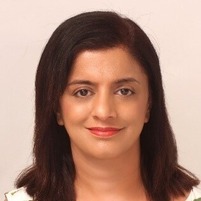
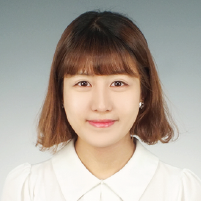
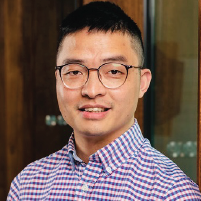
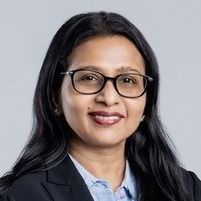
A/Prof Mythily graduated from the Lady Hardinge Medical College, India. She received her PhD in Gambling Studies from Monash University and is currently Assistant Chairman Medical Board (Research) and Lead Investigator of the Programme of Mental Health Policy Studies at the Institute of Mental Health (IMH). She also has a concurrent teaching appointment at the Lee Kong Chian School of Medicine and Saw Swee Hock School of Public Health, National University Singapore. She has worked in the field of mental health for more than 20 years and her main academic and research interests include psychiatric epidemiology, psychosis and addictions.
Till date, A/Prof Mythily has over 500 publications in peer-reviewed journals. She is a reviewer for several grant bodies as well as mental health journals.

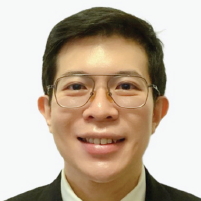
Dr Cyrus Ho is an Assistant Professor (tenure-track) at the Yong Loo Lin School of Medicine, National University of Singapore (NUS). He is also a Senior Consultant psychiatrist at the National University Hospital, managing psychiatric conditions across the age continuum from adolescence to old age. He is interested in interfacing between medicine and psychiatry, complex mood disorders, neuropsychiatry and public mental health.
He studied medicine at NUS and subsequently obtained a Master of Science in Research from NUS, a Master of Science in Applied Neuroscience from King’s College London and a doctorate from NUS. He also underwent neuropsychiatry training at the Montreal Neurological Hospital in Canada and the Royal Melbourne Neuropsychiatry Unit in Australia under the Ministry of Health (MOH) Health Manpower Development Plan award. He was conferred as a Fellow of the Royal College of Psychiatrists (UK), the American Psychiatric Association and the Singapore Academy of Medicine for his contribution to Psychiatry.
Dr Ho has published widely, authoring more than 360 academic papers in international peer-reviewed journals and 5 books. Clarivate Analytics (Web of Science) recognised him as one of the Most Highly Cited Researchers in the world for his contributions to cross-field research from 2021 to 2023 and Neuroscience and Behavioural research in 2024.
He teaches at undergraduate and postgraduate levels. He currently serves as the Psychiatry Undergraduate Education Director of the Yong Loo Lin School of Medicine and is the Assistant Dean (Student Life and Wellbeing) of the NUS Graduate School.
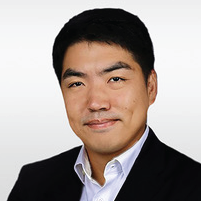
Yuan Chao is a tenured Associate Professor at the Department of Architecture, National University of Singapore. He received the Presidential Young Professorship as an assistant professor and founded the Urban Climate Design Lab at NUS, where he is also the principal investigator. As an architect, urban climate researcher, and educator, Yuan's teaching and research focus on climate-sensitive urban planning and design for sustainable, resilient cities. The topics he covers include urban wind environment, traffic-related and transboundary air pollution, anthropogenic heat, passive cooling technologies, and urban greenery. His goal is to support and develop practical planning and design solutions to build sustainability and resilience in real-world scenarios.
Yuan currently leads his research team, in collaboration with MIT and ETH Zurich, to conduct several studies on urban climate and future resilience for high-density cities. He serves as Director of Research in NUS Cities, Associate Editor for Urban Climate (Elsevier), and Editorial Board Member at Landscape and Urban Planning (Elsevier). Yuan’s work has been published in leading peer-reviewed scientific journals, book chapters, and a self-authored book titled Urban Wind Environment: Integrated Climate-Sensitive Planning and Design, published by Springer Nature. He recently established an IoT Sensing Network and integrated ground-based LiDAR into it for the validation of both microscale and mesoscale urban climate models.
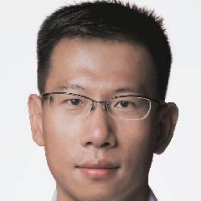
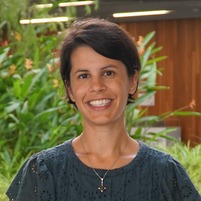
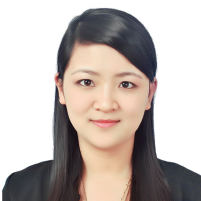
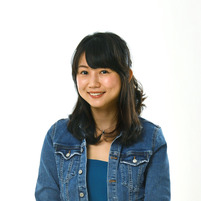
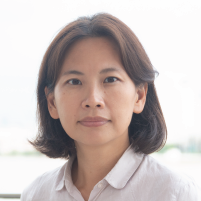
Amy Sim is Internews Asia-Pacific Regional Program Manager (Environment), where she leads a team across the region to strengthen the capacity of journalists, media and other information providers to report effectively on climate change, biodiversity loss, pollution, ocean conservation and other environmental threats, resulting in increased transparency and accountability of environmental governance. Prior to joining Internews, she spent close to ten years in Indonesia with the World Bank working on community-driven development, communication outreach and public service delivery. She also spent several years at the London-based international NGO, ARTICLE 19, where she implemented programming to improve public access to information and press freedom in Asia. In her free time, Amy writes a bi-weekly column for the Singapore Chinese-language daily, Lianhe Zaobao, where she had her first job as a journalist.
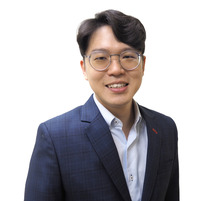
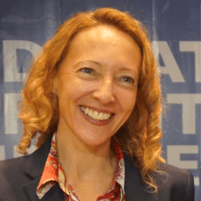
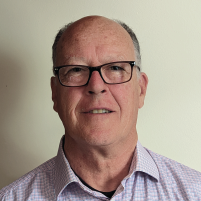
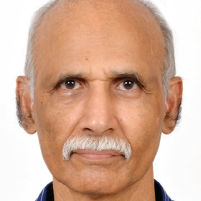
Rupa Kumar Kolli is an Honorary Scientist and former Executive Director of the International Monsoons Project Office (IMPO), at the Indian Institute of Tropical Meteorology (IITM), Pune, India.
Dr Kolli served as the Chief of World Climate Applications and Services Division at World Meteorological Organization (WMO) Secretariat, Geneva, Switzerland, during 2006-2019. He served as the Vice-Chair of the WMO Standing Committee on Climate Services (SC-CLI), during 2020-24. He is currently a core member of SC-CLI and Co-Lead of Expert Team on Climate Services Information Systems for Decision Support. He has been a founding member of the Managing Committee of Global Heat Health Information Network (GHHIN).
Dr Kolli worked at IITM from 1982 to 2006 and was the Head of its Climatology and Hydrometeorology Division. He co-authored a book on “Climates of South Asia”, published several research papers on climate prediction, climate change and climate services. He contributed as one of the Lead Authors on regional climate projections for the Fourth Assessment Report (AR4) of the Intergovernmental Panel on Climate Change (IPCC) in 2007. He received his Ph.D. (1981) and M.Sc. (1976) degrees in Meteorology from Andhra University, Visakhapatnam, India.
Dr Kolli is a Fellow of the Indian Meteorological Society (IMS), and has served as IMS President for the term 2022-24.
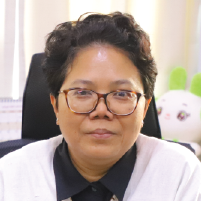
Ms. Moe Thida Win is the Director of Disaster Management at the Myanmar Red Cross Society (MRCS) and the Co-Lead of the Anticipatory Actions and Emergency Response Preparedness Working Group in Myanmar. In these roles, Ms. Moe leads disaster preparedness, response, and recovery initiatives, focusing on building community resilience, addressing the impacts of climate change, and developing sustainable disaster management strategies.
In 2024, Ms. Moe successfully managed a nationwide heatwave response using the MRCS Emergency Management Fund. By coordinating efforts at the branch level, the response ensured timely and effective support for communities affected by extreme heat. This initiative highlighted the critical importance of localized action and strengthened MRCS’s capacity to address climate-related emergencies.
With over a decade of experience in humanitarian operations, Ms. Moe has implemented Cash and Voucher Assistance programs, developed emergency response plans, and integrated climate risk management into disaster frameworks. A key achievement in this work is the development of the Simplified Early Action Protocol for Heatwaves in Myanmar, which prioritizes community-driven solutions and innovative risk assessments.
Ms. Moe holds two master’s degrees, including the ongoing pursuit of a second degree in Applied Statistics. This academic journey complements an extensive professional background, enabling Moe Thida Win to use data-driven approaches to analyze trends and improve strategies for disaster risk reduction and climate adaptation. Ms. Moe’s current research focuses on statistical applications for urban heatwave resilience in Myanmar.
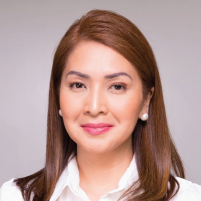
Dr Gwendolyn T. Pang, the current Secretary General of the Philippine Red Cross (PRC), has spent more than 25 years serving the vulnerable and exercising leadership in the Humanitarian Field.
Her dedication to the service of her fellow men started at the Philippine Red Cross where she worked as a volunteer and held various positions culminating in her appointment as Secretary General in April 2009.
After seven years as the Chief Operating Officer of PRC, in June 2016, she was asked to join the International Federation of Red Cross and Red Crescent Societies (IFRC) as Head of the East Asia Cluster responsible for China, Japan, South Korea and Mongolia. In the middle of this assignment, from October 2017 to March 2018, Dr. Pang was appointed concurrent Head of Country in the Democratic People’s Republic of Korea.
Her IFRC role was further expanded in October 2020 when she took on the position as Deputy Regional Director of the Asia Pacific of IFRC. In this position Dr. Pang was responsible for 38 National Red Cross and Red Crescent Societies. From 2019 onward, Dr. Pang was also an Adviser and Guest Professor at the International Academy of Red Cross and Red Crescent societies based in Suzhou, China.
After six years of coordinating humanitarian interventions in the region, Dr. Pang came home to the Philippines and PRC where she served as a member of the Board of Governors from January 2022 to September 2022 and as Secretary General from October 2022 to the present.
Dr. Pang’s outstanding accomplishments have not gone unnoticed. She was conferred the Honorary Degree of Doctor of Humanities by the Lyceum of Northwestern University of the Philippines on April 24, 2023. She was also the recipient of the Florence Nightingale Award, the highest international distinction for a professional nurse for the display of exceptional courage and dedication to victims of armed conflict or natural disasters, which was granted her on May 12, 2015. Closer to home, PRC honored her contributions to the organization and her dedicated and exemplary services to humanity, particularly during the COVID19 pandemic, with the Doña Aurora Aragon Medal Award on December 15, 2021.
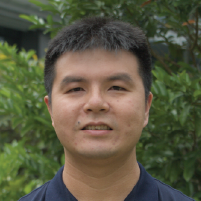
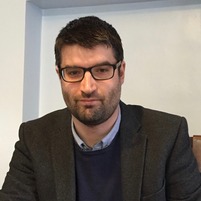

Physician Brandon Yew graduated with a double degree in Biomedical Sciences (1st Class Honours from Nanyang Technological University, Singapore) and Chinese Medicine (Bachelor from Beijing University of Chinese Medicine, China). He then started his Traditional Chinese Medicine (TCM) practice as an Acupuncturist at the Complementary Integrative Medicine clinic (CIM) within Tan Tock Seng Hospital (TTSH).Over the next 7 years, he gained a wealth of clinical experiences across multiple specialties i.e., chronic pain, sports injuries, musculoskeletal disorders, cardiovascular circulatory disorders, respiratory & pulmonary disorders, gastrointestinal disorders, endocrinological disorders, dermatological disorders, urinary &reproductive disorders, immunological disorders, and neurological disorders.
Following his term at TTSH, Physician Brandon moved into private practice as a general physician for a reputable TCM group spanning 2years, with his scope encompassing herbal medicine, acupuncture, and tuina (Chinese manual therapy).
The years of clinical work made Physician Brandon realise that nothing is more valuable and important than having a good quality of life, which is attainable only through a holistic approach towards healthcare. As TCM champions the concept of holism, he began to fully appreciate and embrace the wisdom from this ancient art of healing. Driven by a burning passion to help people, he earnestly hopes his patients can achieve good health and enjoy optimal quality of life, through the best of his abilities in TCM.
Beyond his clinical practice, Physician Brandon periodically conducts health talks, discussions, and workshops to share knowledge and raise awareness in TCM for the public as well as western medical and allied health professionals. He is also a TCM workshop trainer for Family Central by Fei Yue Community Services, and consultant on the panel of healthcare experts for All Things Health online content hub.
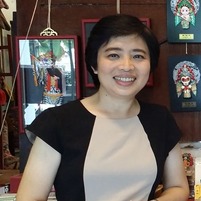
Lim Gaik Siang (she/her) is a dedicated heritage conservationist and cultural advocate. She
served as the immediate past president of the Penang Heritage Trust from 2015 to 2024.
Currently, she is an Expert in both the Tangible and Intangible Committees of the Penang State
Heritage Commissioner and a member of the MBPP Technical Review Panel, a role she has held
since 2015. Additionally, she acts as the Cultural and Heritage Advisor to the Penang Teochew
Association and is a former member of the Consultative Panel of George Town World Heritage
Incorporated.
In recognition of her significant contributions to heritage preservation, Lim was awarded the
National Treasure Guardian by China’s CCTV National Treasure program in 2018 and the
“Canton Friendship Award” by the government of Canton in 2023.
Lim’s journey in heritage management and conservation began in 1999 when she convened the
Chinese Colloquium for Penang Story and contributed to the preparation of the nomination
dossier that led to the inscription of George Town as a UNESCO World Heritage Site in 2008. In
2003, she served as honorary conservation consultant to the Penang Teochew Association,
spearheading the physical restoration of the Han Jiang Ancestral Temple and association
building. These efforts earned the UNESCO Asia-Pacific Awards for Cultural Heritage
Conservation in 2006. Lim continued her work as an honorary conservation consultant in 2010
for the restoration of the Sun Yat-Sen Penang Base and Yin Oi Tong.
A staunch advocate for intangible cultural heritage, Lim initiated a baseline inventory of
traditional trades and artisans in 2012 and an inventory of traditional festivals in 2013. Her
passion for cultural and heritage preservation has led her to curate numerous exhibitions,
including the Sun Yat-Sen Base exhibition (2001), the Penang Sun Yat-Sen Heritage Trail (2011),
the Journey of Chinese Migration to Malaysia (2013), and the Penang Teochew Opera and
Puppet Museum (2014).
As an engaging speaker, Lim has delivered presentations on cultural, historical, and heritage
topics on various prestigious platforms, including the Shanghai Expo (2010), TEDx Petaling
(2013), and TEDx Nibong Tebal (2017). She has also been an honorary speaker on culture and
heritage during visits by dignitaries such as President Abdul Kalam of India (2008), Premier Wen
Jiabao of China (2011), and Prince Charles, Prince of Wales (2017). Her work has been featured
in local and international media outlets, including CNN, CCTV China, and television stations in
Singapore and Taiwan, showcasing Penang’s rich built and intangible cultural heritage to the
world.
In 2017, Lim published a chapter on wood carvings and their interpretations in the book ‘Within
the Walls of Tun Tan Siew Sin’s Ancestral Home.’ In 2023, she presented a paper titled “Why
Heritage Conservation is Considered Green Development - Drawing Examples from George
Town World Heritage Site” at the Southeast Asian Cultural Heritage Alliance (SEACHA)
conference.
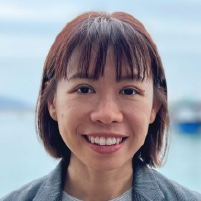
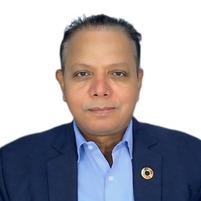
Sanjay K Srivastava is presently the Chief of Disaster Risk Reduction at UN Economic and Social Commission for Asia and the Pacific (ESCAP).
He leads and guides ESCAP’s analytical policy research on disaster risk reduction and climate change adaptation that feeds into the UN intergovernmental meetings, negotiations, and agreements as well as supports to development of national DRR strategies, National Adaptation Plan etc.
Prior to the present position, he was the ESCAP Regional Adviser on Disaster Risk Reduction; Head of SAAARC Disaster Management Centre – New Delhi; Scientist/Engineer and Deputy Project Director of Disaster Management Support Programme at Indian Space Research Organisation (ISRO) at ISRO HQ Bangalore since 1991.
He has received 2nd ESCAP innovation awards (2022 and 2024) and is the recipient of ISRO’s Team excellence award in 2008-09. He has more than 150 publications to his credit. He is the lead author of the UNESCAP’s Asia-Pacific Disaster Report, WMO’s State of Climate in Asia and State of Climate Southwest Pacific.
Academic qualification: Ph D (Remote Sensing) from IARI, New Delhi 1989; Master of Science (Physics) from Patna University (1984) and Bachelor of Science (Physics Honours) from Patna University 1980. University of California, Berkely Haas (US) – Executive Education - Certificate course on Digital Transformation: Leading People, Data and Technology (2023)
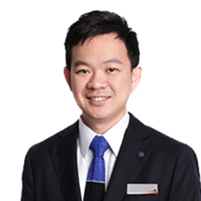
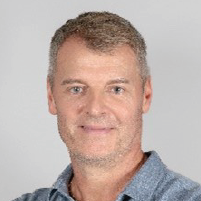
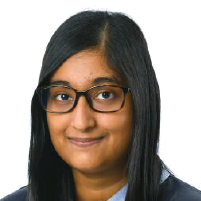
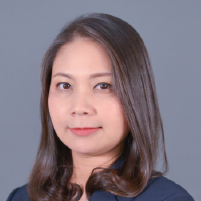

Ollie Jay is Professor of Heat and Health and Academic Director of the Heat and Health Research Centre at the University of Sydney. Ollie is a NHMRC Leadership Fellow and has led several large-scale projects that have directly influenced international public health heatwave policies internationally. In 2021, he co-led the first-ever Series on Heat and Health in The Lancet, and his work has recently been profiled in both Science and Nature.
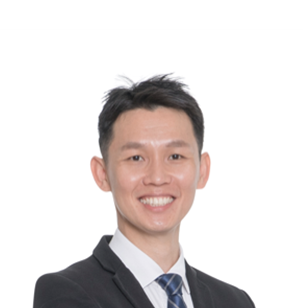
Jason Lee is an Associate Professor at the Yong Loo Lin School of Medicine, National University of Singapore, where he directs the Heat Resilience and Performance Centre and co-leads the Human Potential Translational Research Programme. He is on the Global Heat Health Information Network Management Committee, and chairs its first regional hub in Southeast Asia, leading efforts at the regional level to scale up efforts in managing the complex health risks posed by rising ambient temperatures. Jason also chaired the Scientific Committee on Thermal Factors at the International Commission on Occupational Health.
Jason Lee obtained his first degree (1st Class Honours) from Loughborough University, UK. Following the award of G V Sibley Memorial Prize, he stayed on to complete a PhD in Exercise Physiology under sponsorship from the UK Overseas Research Scholarship and Faculty Studentship. Jason is a Fellow of the American College of Sports Medicine. Tapping on his experience as a Commando Officer in the Singapore Armed Forces and domain knowledge, he serves in various national and international panels related to human performance and safety. Jason’s main research interests are in fluid balance, thermoregulation and mitigation strategies for improving human performance. He studies the physiological demands associated with passive and exertional heat stress and how humans adapt to ensure optimum performance and survival. A key outcome of his research is the formulation of a holistic heat management system. This is achieved through profiling the associated heat strain in humans under various settings, designing and evaluating heat mitigation strategies (physical conditioning regimes, heat acclimatisation, pre-activity cooling, work-rest cycles and hydration) and finally translating them into policies such as training directives, training safety regulations and lesson plans. Knowledge gained from his research has also benefitted several other governmental agencies. Jason completed his 12-year tenure at the DSO National Laboratories in 2018 by directing the Human Performance Programme in his final appointment. He has delivered more than 250 invited presentations locally and internationally.
